The Australian Government is now in caretaker period. During this time, updates on this website will be published in accordance with the Guidance on Caretaker Conventions, until after the election.
Latest news and stories
NHMRC Media

Research Excellence: Microelectrode recordings from the vagus nerve in awake humans
Professor Vaughan Macefield is the Professor of Neuroscience in the Department of Neuroscience at Monash University. Professor Macefield specialises in recording from single nerve fibres via microelectrodes inserted into the peripheral nerves of awake human participants. He is best known for developing the methodology for recording the firing properties of single, type-identified, sympathetic neurones supplying muscle and skin, and for developing the methodology for recording muscle sympathetic nerve activity at the same time as performing functional magnetic resonance imaging of the brain. Read on to find out more about Professor Macefield's research, in his own words.
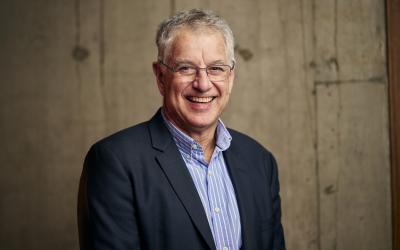
Tackling health challenges of the present and the future
As an infectious disease physician and researcher in HIV, vaccine development and the impact of the microbiome on human health, Professor Wesselingh brings a wealth of medical experience, clinical leadership as well as national and international success to this role.
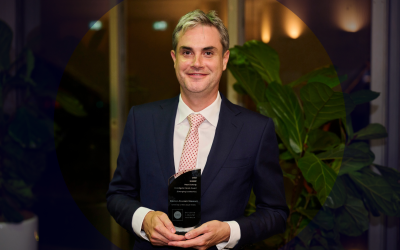
Research Excellence: Understanding membrane protein structures
Dr Alastair Stewart, Head of the Institute’s Structural Biology Laboratory at the Victor Chang Cardiac Research Institute (VCCRI) focuses his research on understanding the mechanisms of how cells transport drug molecules using cyro-electron microscopy technology. Based within VCCRI’s Innovation Centre, Dr Stewart’s research involves generating detailed information on the function of membrane protein structures, providing a template to better understand drug interactions within the body. Read on to find out more about Dr Stewart’s research, in his own words.
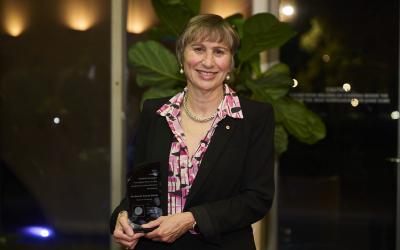
Research Excellence: trialling women's testosterone therapy
Professor Susan Davis AO, Head of the Monash University Women’s Health Research Program, focuses her research on understanding the role of sex hormones, particularly testosterone, in women’s health. Her program of research involves a series of innovative, complementary clinical trials to determine if the hormone can serve as a new therapy to protect against leading causes of ill health in postmenopausal women. Read on to find out more about Professor Davis’s research, in her own words.
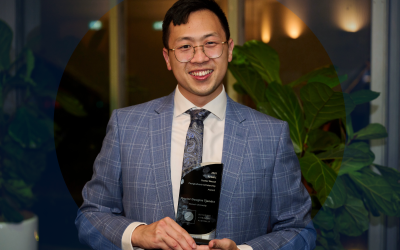
Research Excellence: predicting gastric cancer
Dr Doug Tjandra is an advanced trainee in gastroenterology at The Royal Melbourne Hospital with an interest in preventing gastrointestinal cancers and immunotherapy-related complications of the gastrointestinal tract and liver.

Transcript: RN Breakfast interview with Professor Anne Kelso AO on gender equity in research funding
In the final days of Professor Anne Kelso’s term at NHMRC, we reflect on her contribution to the agency and the sector, including through initiatives to address gender disparities in health and medical research. Professor Kelso explained why such interventions are necessary during an interview with Patricia Karvelas on ABC Radio National Breakfast on November 15 2022.

Transcript: MJA Podcast interview with Professor Anne Kelso AO on her term as NHMRC CEO
In the final days of Professor Anne Kelso’s term at NHMRC, we are reflecting on changes that have taken place at the agency and in the wider sector while she has served as CEO. During an interview with Cate Swannell for the MJA Podcast on December 5 2022, Professor Kelso discussed some of the most significant experiences of her tenure, including the introduction of an initiative to address gender disparities in the Investigator Grant scheme.

Research excellence: understanding the first few weeks of pregnancy
Professor Jose Polo’s work in epigenetics spans diverse fields, including cellular reprogramming, embryogenesis, neurobiology, immunology and cancer. His Synergy Grant brings together a multidisciplinary team who will combine the latest advances in models of early development, genetics and molecular biology to determine how the early placenta produced by the embryo burrows into the uterus and keeps developing during the entire pregnancy.

Research Excellence: rapidly detecting emerging viruses
It is challenging to contemplate, but the world can expect to experience pandemics like COVID-19, and perhaps even larger in scale, in the future. Professor Eddie Holmes is developing a pandemic radar to rapidly detect emerging viruses and determine which are most likely to have pandemic potential. His research focuses on understanding the fundamental mechanisms of virus ecology and evolution, as well as how viruses jump species boundaries to emerge and cause disease in new hosts.

Excellence in ethics and integrity
Reverend Kevin McGovern, recipient of the 2023 NHMRC Ethics and Integrity Award, is one of Australia’s leading ethicists, active in education, research and policy for over 25 years. Throughout his professional life as a parish priest, academic and community leader, Reverend McGovern has brought to innumerable discussions and debates the highest quality and intensity of consideration. His reputation for the courage of his convictions and his openness and respect for others with a diversity of views is unparalleled.
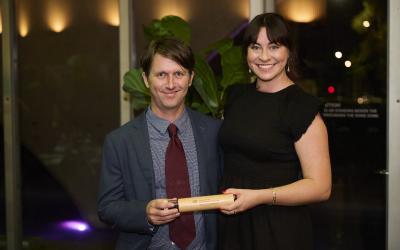
Excellence in consumer engagement: optimising the lives of people with aphasia
The Queensland Aphasia Research Centre (QARC) brings together people with aphasia, their families and friends, clinicians and researchers in the collaborative development of innovative and novel health interventions that transform lives. At NHMRC's Research Excellence Awards in March, QARC received the 2023 NHMRC Consumer Engagement Award, which recognises an individual, a group of individuals or an organisation that has made a long-term contribution to consumer and community involvement in health and medical research.

Research Excellence: A vision for the elimination of tuberculosis
Professor Greg Fox is a respiratory doctor and clinical trialist at the University of Sydney and Director of the Sydney Vietnam Institute who is contributing to the momentum towards tuberculosis (TB) elimination. Professor Fox received the 2021 NHMRC David Cooper Clinical Trials and Cohort Studies Award, recognising the highest ranked recipient in the Clinical Trials and Cohort Studies scheme.
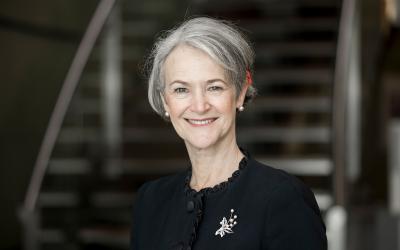
Research excellence: Transforming midwifery in the Asia-Pacific region
Professor Caroline Homer AO is a midwife and maternal and newborn health researcher. Her research addresses maternal and newborn health issues, especially the role of midwives in improving outcomes in limited-resource settings, with a focus for more than 20 years on the Asia-Pacific region.

Research Excellence: New antibody therapies against malaria and COVID-19
Professor Wai-Hong Tham was one of four distinguished female researchers to receive 2022 NHMRC Elizabeth Blackburn Investigator Grant Awards. Her award was for the highest ranked female recipient (Leadership category) in the Basic Science research area of the Investigator Grants scheme. Professor Tham is Head of the division of Infectious Diseases and Immune Defence at WEHI and co-Chair of the WEHI Biologics Initiative.
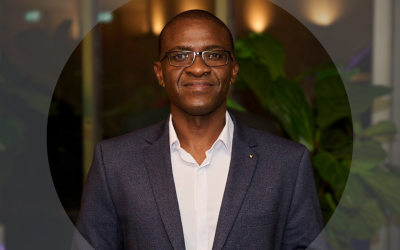
Research Excellence: Identifying gaps and solutions needed for HIV elimination
Dr Tafi Marukutira is a medical doctor and public health researcher, specialising in infectious diseases epidemiology. Dr Marukutira received the 2022 NHMRC Frank Fenner Investigator Grant Award (Emerging Leadership), which recognises the highest ranked recipient in the Emerging Leadership Level 1 Investigator Grant category within the Basic Science or Public Health research areas, for his work on equitable access to HIV care and treatment.
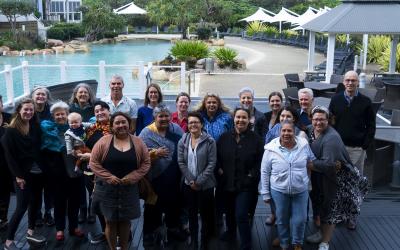
Communities driving health care research
'It’s about coming with an open mind and heart, and willingness to deeply listen to community… to have any preconceptions challenged and re-learn ways of doing research' - Dr Veronica Matthews , co-lead investigator, STRengthening systems for InDigenous healthcare Equity (STRIDE)

$5 million for Indigenous-led Aboriginal and Torres Strait Islander maternal and child health research project
A research team led by clinical psychologist Associate Professor Yvonne Clark will receive almost $5 million in NHMRC-administered funding for a project to improve Aboriginal and Torres Strait Islander health and wellbeing during pregnancy, birth and the early years.

Improving carer wellbeing and empowering Indigenous communities
Associate Professor Dina LoGiudice is a geriatrician and clinical researcher with a special interest in dementia and ageing well. For close to two decades, she has been studying the impacts of ageing and dementia in Aboriginal and Torres Strait Islander communities.

Smiles saved with a major improvement in dental health of young Aboriginal children
For much of his professional life in the United Kingdom, Professor Anthony Blinkhorn has focussed on improving the oral health of children in poorer communities through collaborative approaches with government agencies. This work saw him appointed as Chair of Population Oral Health at the University of Sydney in 2007, funded by the NSW Health Centre for Oral Health Strategy.

Mind the gap – Filling in the missing evidence for massive blood transfusion policy
Professor Jamie Cooper AO is Sir John Monash Distinguished Professor in the School of Public Health and Preventive Medicine at Monash University, and Senior Specialist in Intensive Care at The Alfred Hospital in Melbourne.
Developing immunity to cancer
Immunologist Dr Jason Waithman leads the Cancer Immunotherapy Group at the Telethon Kids Institute in Western Australia.

Healthier hearts in the tropical north
Professor Anna Ralph is a practicing medical specialist and leads the Global and Tropical Health division at Menzies School of Health Research in Darwin.
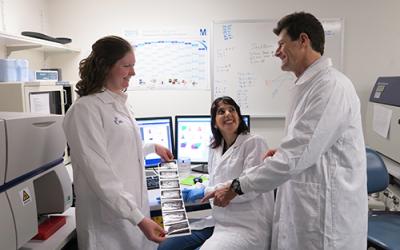
Unravelling genomes to find an answer
Autoimmune diseases account for one of the largest burdens of chronic disease on our health system. According to Professor Chris Goodnow FAA FRS, there are more than 100 autoimmune diseases that collectively affect 10% of people.

Lessons from the best to improve Indigenous health services: a collaborative learning approach
Professor Sarah Larkins has focused on improving equity in health care services in rural, remote and Indigenous populations since a medical education placement in the Northern Territory highlighted the tremendous inequities in health care access in the region.

10 of the Best - Harnessing the power of science to understand and overcome today’s health challenges
Welcome to National Health and Medical Research Council's (NHMRC) 10 of the Best – Thirteenth Edition, a tribute to the researchers and their teams around Australia who are tackling the health challenges that we face from birth to later life.

Metal complexes for the treatment of age-related diseases of the brain
Dr Jeffrey Liddell from the University of Melbourne is a mid-career neurobiologist, with an interest in neurodegenerative diseases and understanding their underlying causes.

Born too soon – A better life for preterm babies
A major achievement for Associate Professor Shannon Simpson was the recent establishment of PELICAN (Prematurity’s Effects on the Lungs In Children and Adults Network), which she co-chairs with Dr Jenny Hallberg from the Karolinska Institute in Sweden.

Helping children get the best start to life
Professor Harriet Hiscock is a paediatrician researcher at the Murdoch Children's Research Institute. Her work focuses on keeping children out of hospital, reducing low value care, and improving access to and quality of care – especially mental health care.

Consultation on options to reach gender equity in the Investigator Grant scheme: Consultation closed
NHMRC's vision is a gender diverse and inclusive health and medical research workforce to take advantage of the full range of talent needed to build a healthy Australia.
NHMRC has completed its consultation on options to reach gender equity in the NHMRC Investigator Grant scheme.
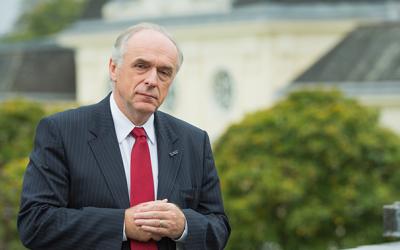
Forging a farsighted agenda with a novel global way of thinking about science
The Human Frontier Science Program (HFSP) was established in 1990 to promote international collaboration in basic research focused on the elucidation of the sophisticated and complex mechanisms of living organisms. Since then, 1180 research grants have been awarded to more than 7500 researchers representing 71 nationalities, including Australia.
HFSP Secretary-General Professor Pavel Kabat introduces the program and three prominent researchers tell us how their HFSP grants advanced their research.
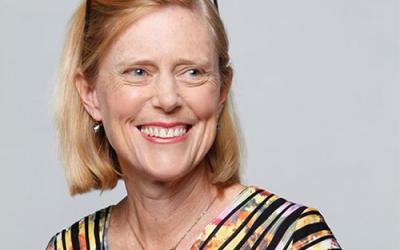
A paradigm shift in kidney research
Surprisingly, understanding of organ assembly is extremely limited. Professor Melissa Little and team received an Human Frontier Science Program (HFSP) grant and established the most comprehensive quantitative image-based analysis of any organ ever described. The challenges of bringing together researchers from different fields is one of vocabulary, but the benefit is considerable.

Towards cyborg biology - electrochemical biosensors of everything
There is a long running interest in the idea of machine-organism hybrids, although the integration of electronic and biological systems remains underdeveloped. Professor Kirill Alexandrov and his collaborators received Human Frontier Science Program (HFSP) funding to explore the 'undoable'. Multidisciplinary teams are a must and spur new creative projects.

Lipid droplets and our defensive arsenal - killing the bacteria to prevent infection
Lipid droplets are exploited by pathogens that invade cells and then use the cellular lipid droplets as a source of fats. Professor Rob Parton and his team received a Human Frontier Science Program (HFSP) grant to explore the possibility that lipid droplets might also be a crucial form of defence against pathogens. International collaborative networks have allowed access to techniques and expertise. They have also facilitated mentoring and collaboration for students and early career researchers.
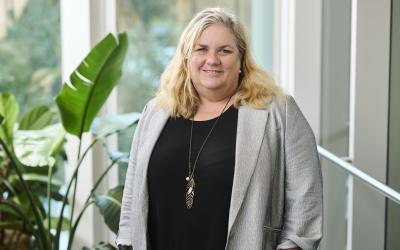
Making a decision to do the hard research, that’s what discovery is about
Deciding to commit to a research life is brave – so is committing to do the hard research. Professor Cath Chamberlain says with Aboriginal and Torres Strait Islander health, in particular, 'we are going to need to take some more risks to do things differently'.
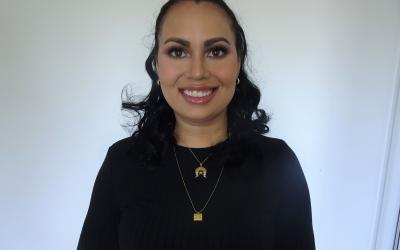
Internship brings entirely new set of skills
Sharna Motlap has always been interested in creating and implementing evidence-based programs specifically tailored to Indigenous communities.
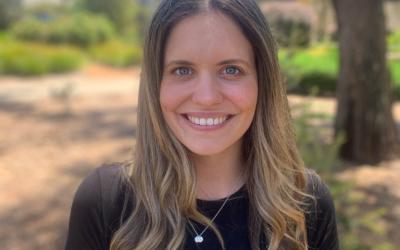
'I leave not only a more confident worker but also a more confident person.'
Emily McDonald’s journey to becoming an intern at NHMRC has not been exactly straightforward.
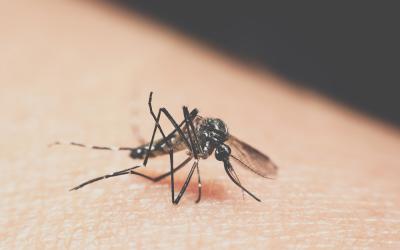
Regional research collaborations fighting dengue fever
The spread of Japanese encephalitis virus in south eastern Australia is a reminder that mosquito-borne viruses pose an ongoing threat to lives and livelihoods, particularly in our region. That includes dengue fever spread by the Aedes aegypti mosquito. Australian researchers are collaborating closely with colleagues on two fronts – to eradicate the virus and find biomarkers that will lead to better diagnosis and treatment.
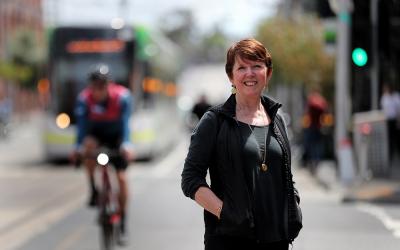
A passion project to make the heart sing: Urban planning for healthier lives
Professor Billie Giles-Corti was a 'lone wolf', she says, when she started her research career. In 2022, the time has come for public discourse about the direct links between city planning and health. She is part of a global network making the connections between liveability and health outcomes.
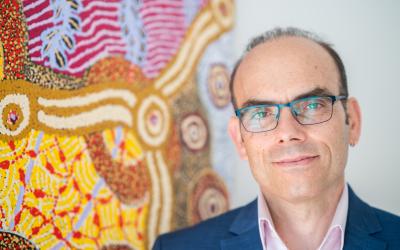
HEAL national research network addressing the health effects of environmental change
The Healthy Environments and Lives National Research Network (HEAL) was announced at the end of 2021 with a grant of $10 million over five years, as an NHMRC Special Initiative to provide national and international leadership in environmental change and health research. HEAL formally starts in May 2022; a lot of groundwork has been done to create the foundations for a large and diverse collaboration to deliver its ambitious work plan over the next five years and beyond.

Gender disparities in NHMRC’s Investigator Grant Scheme
CEO Communique – February 2022
Speech is a uniquely human skill many take for granted
Professor Angela Morgan is head of speech and language at the Murdoch Children’s Research Institute and Professor of Speech Pathology at the University of Melbourne and was the recipient of the 2020 NHMRC Elizabeth Blackburn Investigator Grant Award (Leadership in Clinical Medicine and Science).
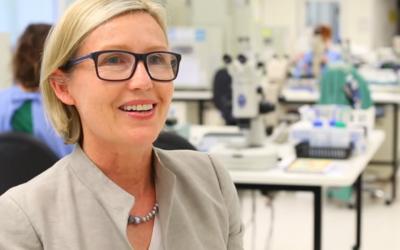
To improve child health, focus on conception
Professor Sarah Robertson from The University of Adelaide is recipient of an NHMRC Investigator Award and was awarded the Elizabeth Blackburn Investigator Grant Award (Leadership in Basic Science) at the 2020 NHMRC Research Excellence Awards.
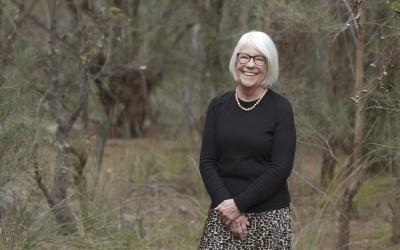
How Anne McKenzie went from ‘just a mum from Morley’ to consumer engagement champion
Pioneering health consumer advocate Anne McKenzie AM has been awarded NHMRC’s Consumer Engagement Award in recognition of an almost 30-year career during which she has helped thousands of Australian clinicians and researchers understand the value of listening to consumers.
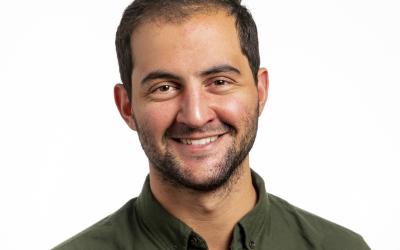
Developing innovative vaccines to tackle influenza B virus
Dr Marios Koutsakos is a postdoctoral research fellow at the Peter Doherty Institute for Infection and Immunity, University of Melbourne. He works on the development of a universal influenza B vaccine and on understanding the fundamental biology of immune responses to vaccination. Dr Koutsakos received the 2020 NHMRC Frank Fenner Investigator Grant Award.
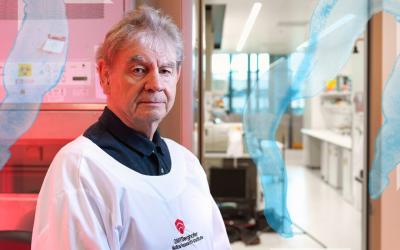
Developing innovative interventions to eliminate parasitic worm infestations
Professor Don McManus is senior scientist at QIMR Berghofer and an internationally acclaimed parasitologist. This year, he was awarded the 2020 NHMRC Peter Doherty Investigator Grant Award (Leadership).
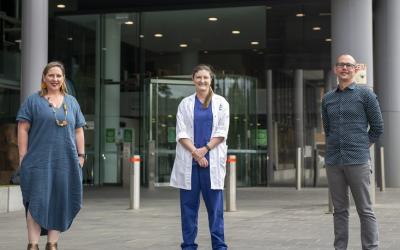
Patient collaborators in groundbreaking brain cancer research
Patients are collaborators along with structural biologists, immunologists and neurosurgeons in the groundbreaking brain cancer research being conducted by the tight, multidisciplinary team being led by WEHI’s Associate Professor Misty Jenkins.
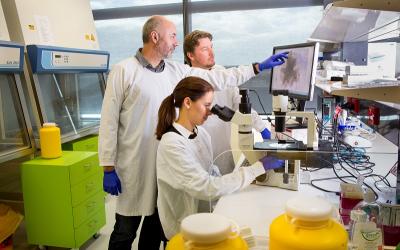
Science to art: Research behind the science behind the image
Professor Frédéric (Fred) Hollande is Deputy Head at the Department of Clinical Pathology, University of Melbourne, and a group leader at the University of Melbourne Centre for Cancer Research. He’s also behind the image recognised in the Science to Art NHMRC Biennial Award.
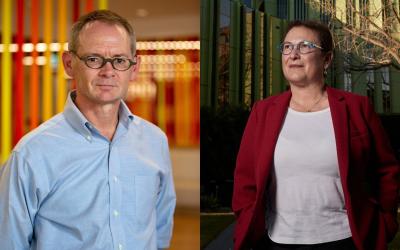
Game-changer for cancer research and therapeutic development
2021 ANSTO Eureka Prize for Innovative Use of Technology
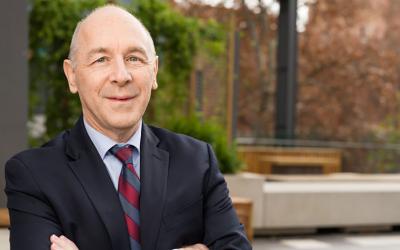
Crossing disciplines to answer complex research questions
University of Adelaide's Professor Ian Olver received the 2021 NHMRC Ethics Award in recognition of his significant contribution to Australian health and medical research ethics over the last decade. As chair of NHMRC’s Australian Health Ethics Committee, and as a valued member of NHMRC Council from 2012 to 2018, his balanced and considered leadership style and willingness to engage sensitively on tough issues supported a wider understanding of the ethical impact of emerging health and medical research innovations and technologies.
New research on boosting killer immune response to cancer
Drugs already approved and available could be the answer to boost the production of killer T cells and improve the success rate of immunotherapies for cancer.
